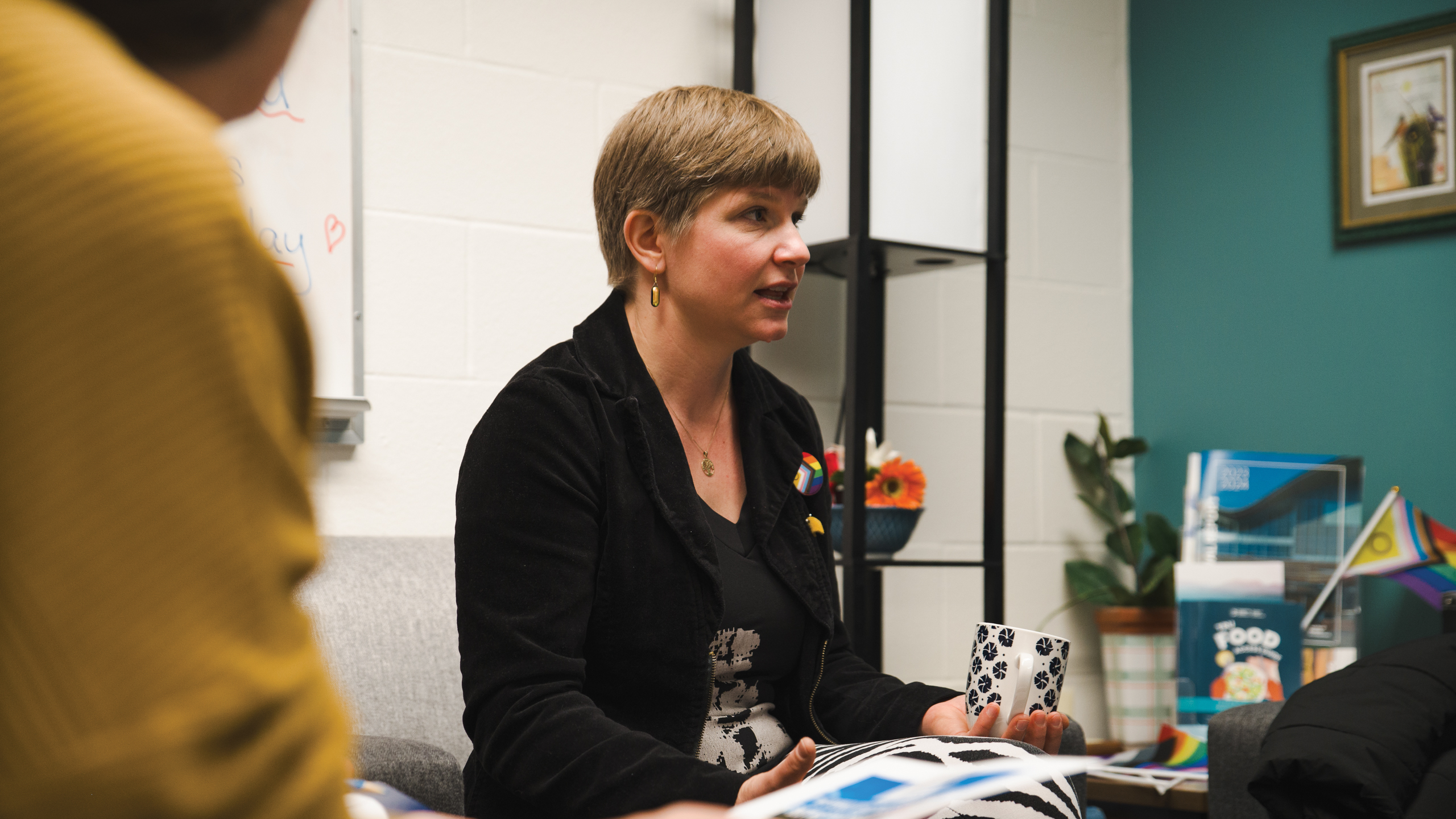While global conflicts continue to displace millions, Thompson Rivers University (TRU) in Kamloops, along with local organizations like Kamloops Immigrant Services, is stepping up to provide a comprehensive support system for students from war-torn regions. Offering a blend of academic, emotional, and practical resources, these initiatives are meant to help students from places like Palestine and Ukraine rebuild their lives and adjust to life in Canada while coping with the trauma of displacement.
Pedro Mori is a fourth-year journalism student at TRU. He’s been closely watching news coverage of the war in the Middle East and has friends from many war-torn countries impacted, like Lebanon. He noted that while these students face immense hardship, many remain resilient and positive.
“It’s amazing how they try to remain very positive. Normally, you would feel a sense of despair, but these students are looking for how they can make a difference,” Mori said.
Although Mori acknowledged TRU’s efforts to provide resources like the Wellness Centre, he highlighted a gap in outreach, saying that some students may hesitate to seek help due to fear. “A lot of these students are a little bit reluctant to try and seek the help because they’re scared of what could happen afterwards,” he said.
Leah Dagg, a communications consultant at TRU, explained how the university has developed a holistic support system for international students, particularly those from regions affected by war.
“Our international student advisors (ISA) team is committed to providing personalized, one-on-one support for students from conflict zones,” Dagg said. “Whether in-person or virtually, we offer a broad range of services, including emergency financial aid, housing assistance, food security, travel support, and guidance through the complexities of settling into a new country.”
Dagg states that many of these students struggle to adjust to a fresh start, and it’s an overwhelming challenge as they navigate the stress of adjusting to a new academic system while coping with the emotional and psychological weight of their experiences in war-torn regions. “We go beyond the typical academic support and recognize that these students are often grappling with trauma and displacement, so we work closely with them to make sure they have everything they need to succeed here, academically and emotionally,” Dagg said. “We make sure that students are aware of our counselling services and we encourage them to reach out whenever they need help. These services are a critical part of ensuring students feel supported and able to focus on their studies and well-being.”
Beyond the university, local organizations like Kamloops Immigrant Services (KIS) also provide critical support for newcomers, including students from conflict zones, as they adjust to life in Canada. Kate Cheng, a settlement counsellor at KIS, outlined the range of programs designed to assist individuals and families who have fled war and violence.
“Our primary goal is to help newcomers settle into their new community and provide the tools they need to succeed here in Kamloops,” Cheng said. “This includes everything from helping families navigate the Canadian education system to offering assistance with housing, employment, and accessing healthcare.”
For families facing more complex challenges, particularly those fleeing conflict, KIS offers the Achieve Program, a specialized initiative for individuals who may have no housing, no jobs, and limited access to healthcare. “These families are often dealing with trauma and displacement … they face significant barriers to rebuilding their lives,” Cheng explained. “Our role is to connect them with the necessary services, from mental health support to legal assistance, and to help them navigate the system.”
Rev. Jane Gingrich, a campus chaplain at TRU, has witnessed firsthand the emotional toll that the ongoing conflicts in Palestine, Ukraine, and other regions have had on students. “Over the past decade, I’ve seen a lot of students come and go, but this year, there is an overwhelming sense of grief,” Gingrich said. “Students are not only mourning personal losses but are also carrying the emotional weight of the suffering they see unfolding in their home countries.”
In response to these emotional needs, Gingrich has launched a grief support program in collaboration with TRU’s Wellness Centre. The five-week program provides a space for students to process their emotions, share their experiences, and receive emotional support in a safe and compassionate environment.
“It’s essential that students have an outlet to express their grief,” Gingrich said. “This program gives them a chance to name their feelings, explore their grief, and begin to heal.”
Although the series is rooted in Christian teachings, Gingrich emphasizes that the program is inclusive and accessible to all students, regardless of their religious background. “The texts and themes we use overlap with Jewish and Muslim sacred writings, so the program is not exclusive to any one faith,” Gingrich said. “We aim to create a space where all students can find comfort and support.”
Gingrich works closely with the Wellness Centre to ensure that students can access counselling services and other forms of emotional support as needed.
For many of these students, the road to recovery and adjustment is long. Still, the combined efforts of TRU and Kamloops Immigrant Services are helping them navigate this journey with greater resilience. Dagg emphasized that TRU is committed to supporting students from conflict zones, academically and in all areas of their lives.
“We recognize that these students are facing incredible challenges, but our holistic approach ensures they don’t just survive—they thrive.”

